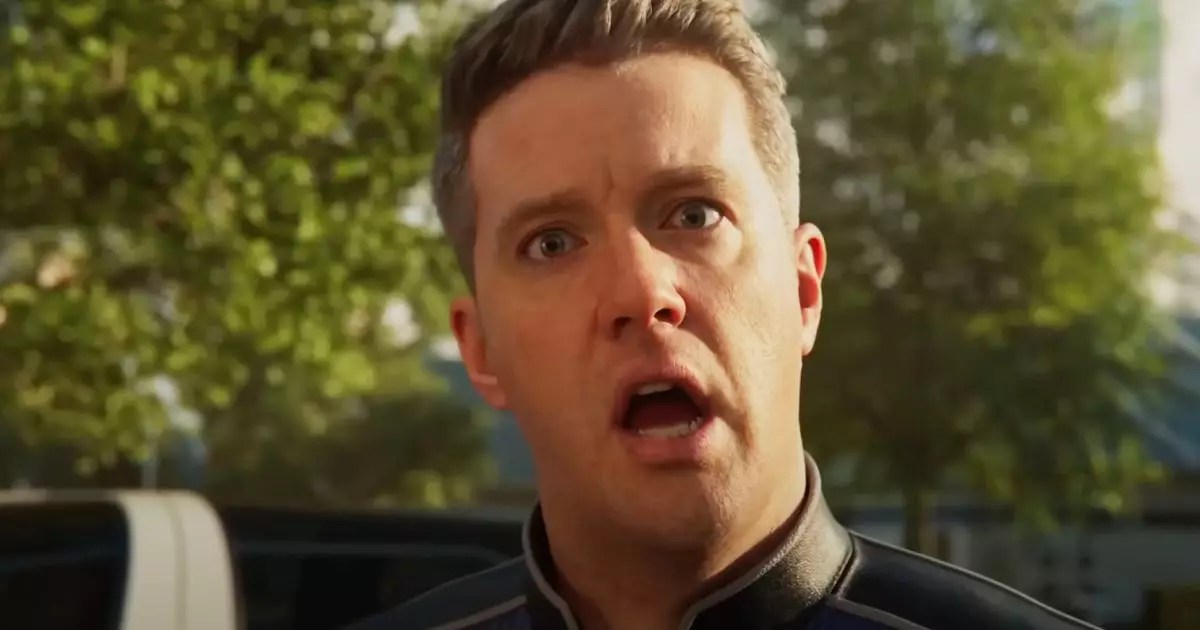Helldivers 2’s latest update is not just another routine patch; it is a daring convergence of gameplay intensity and socio-political satire. The developers at Arrowhead Studios seem to be challenging players by framing their objectives as a high-stakes military campaign, laden with moral complexity and dark humor. Instead of soft encouragement, the game delivers stern mandates—orders to slaughter millions of enemies to restore confidence in a beleaguered democracy. This approach signals a shift towards a more immersive experience where the line between entertainment and commentary is deliberately blurred. It’s an audacious move, and it forces players to confront the grotesque realities of war in a fictional universe that stereotypes both real-world conflict and bureaucratic propaganda.
The game’s tone is unapologetically gritty, emphasizing the chaos and brutality of war through a satirical lens. The “relentless assault on Managed Democracy,” as the in-game narrative puts it, reflects a society overwhelmed by fear, misinformation, and violence. By doing so, Helldivers 2 not only seeks to entertain but also to critique the absurdities of political fabrications wrapped in militarized rhetoric. While some might see this as mere dark humor, I believe it also functions as a pointed commentary on how governments can manipulate perceptions of security to justify aggressive actions—a theme that resonates well beyond the game’s universe.
Challenging Players with Ambiguous Morality
The in-game directives are staggering: require players to eliminate millions of enemies—aliens, monsters, and synthetic enemies that symbolize our collective nightmares. This isn’t just about making the game difficult; it’s about forcing players into a moral gray zone. War, as depicted here, becomes a spectacle of death and destruction delivered with an almost satirical flourish, emphasizing the absurdity of mass killing as a solution to societal fears.
What strikes me as particularly insightful is how Arrowhead manages to make this violence feel both mock-heroic and deeply uncomfortable. The game’s tone—combining over-the-top violence with sharp satire—forces players to question whether the act of killing in a game can or should serve as a form of entertainment. This self-awareness is refreshing, because most shooters tend to glorify violence without weighing its consequences or underlying narratives. Helldivers 2’s narrative approach twists the genre into a mirror held up to societal absurdities, prompting critical reflection even as players wield their weapons.
The Satirical Underpinning of Power and Propaganda
What truly elevates Helldivers 2’s latest patch is its satirical undercurrent. The game’s depiction of “Managed Democracy”—a concept ripe for parody—pokes fun at how modern governments often manipulate fears and crises to maintain control. The game’s exaggerated fear-mongering, referencing citizens’ paranoia about invasions and dismemberment, underscores how political regimes capitalize on terror to justify extreme measures. Arrowhead’s satire appears to critique the constant spectacle of conflict that dominates contemporary news cycles, especially in the digital age where sensationalism reigns supreme.
Furthermore, the game’s narrative emphasizes the performative nature of warfare, with propaganda campaigns urging players to participate in mass slaughter under the guise of restoring peace. The specific orders—targeting a grotesque variety of enemies—highlight the absurd diversity of threats that become justification for indefinite conflict. Amidst this chaos, the developers mirror real-world conflicts, where leaders often escalate violence to distract from internal issues or to control public perception. It’s a reflection wrapped in sci-fi language, yet the message remains painfully relevant: war is often less about security than about power and perception.
Rewarding Engagement and Building Community Through In-Game Symbols
Beyond the aggressive mission objectives, Helldivers 2 subtly fosters community and loyalty through its engagement rewards. The issuance of a special cape named Ingress-81, as recognition for players who participated in an early alternate reality game, exemplifies this. It’s a clever blend of gameplay and storytelling, tying in-game achievements to broader narrative elements. This move not only incentivizes participation but also sustains community interest by creating a shared sense of accomplishment and insider status.
The design of the cape itself—vibrant purple with cryptic braille patterns—serves as a badge of honor for dedicated players. It reflects the game’s underlying tone of satire and mystery, hinting at secret communications and clandestine operations. Such elements enhance the game’s universe, encouraging players to look deeper into the lore while reinforcing their connection to the ongoing narrative. On a broader level, the approach demonstrates how gaming can become a form of interactive storytelling, where rewards are not mere trophies but symbols of participation in a larger, satirical universe.
Helldivers 2’s latest campaign exemplifies a bold evolution in military-themed gaming—one that combines raw violence, satirical critiques, and community-building elements. While some might dismiss its brutal messaging as mere spectacle, I believe it serves a higher purpose: to challenge players to think critically about the narratives of conflict, power, and propaganda that pervade not only gaming but our society at large.


Leave a Reply